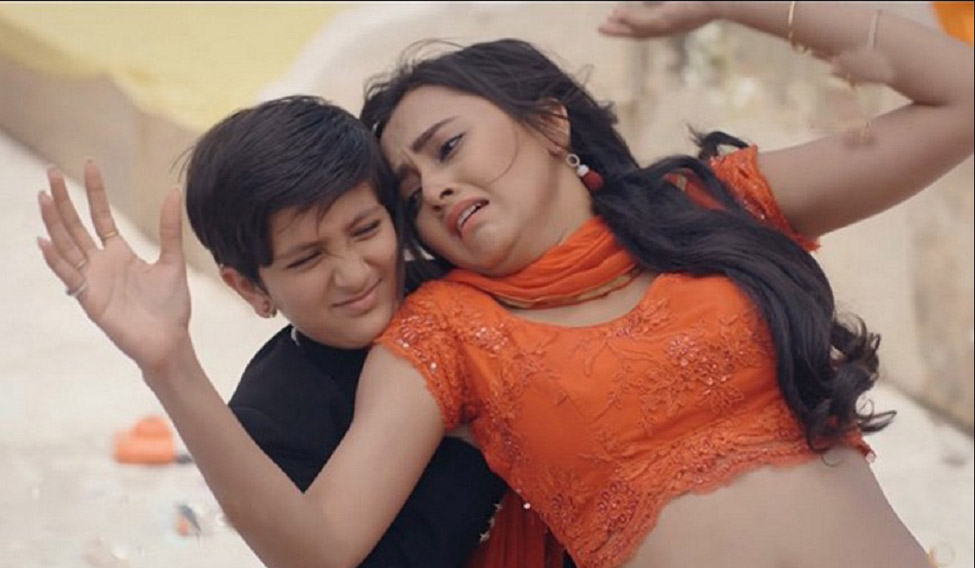Pehredaar Piya Ki is not the first soap on prime time television to serve femininity in all its Indian glory. But as an 18-year old gorgeous princess delights in gleeful amusement over her 9-year old little male muse, petitions have been fired online about the apparently “distasteful” plot that seemingly “exploits Indian culture” and “glorifies child marriage in the minds of impressionable young boys”.
Any genuine feminist critic trying to decode the hapless, male-dominated politics of gender will take the opportunity to indulge in a laugh riot if she doesn’t see through the subversive mythopoeic fantasy at work here. Really? So when did it all change? Is this Lolita’s style of seeking poetic justice?
But there’s more to it. The 23-minute episodes that took off on July 17 this year, are terribly engrossing, and could well be a visual snap out of Sanjay Leela Bhansali’s cinematography, adding some more kink to it for spice. “If you kiss me, your lipstick marks will remain on my cheeks and when I go outside, everyone will mock me,” says the innocent little Ratan (played by Affan Khan). But when Khan’s light brown eyes peer out of that wooden gift box that he is hiding in, at the time that he first sets eyes on his “caretaker” to whom he will play puppy all his life, the one person you can’t help remembering is actually dear old Shammi Kapoor.
“The people who write these petitions don’t really work for television,” says Bollywood script writer Sanjay Chhel, who is cynical about the petition even though he hasn’t watched the serial yet. “The idea is to create characters who shock and startle. That’s how we grab eyeballs.”
Chhel, who recently faced censor cuts for his dialogues in Madhur Bhandarkar’s Indu Sarkar points out that regression, negative characters and human flaws, like in Nabakov’s Lolita, have always existed in popular culture, and that never meant that a story was not a story. In Lolita, a perverted old man (Nabakov) is a pedophile who takes sexual pleasure out of his infantile daughter, and documents his mind through what was to become a global cult classic that inspired many similarly-themed others, from inside the four walls of a prison. Does that mean that the publishers of Lolita endorsed child abuse?
Yet, PPK’s story is not just equally gripping, but also culturally challenging, rousing our curiosity about whether the Mittals are trying to pull a parody out here, particularly when the little male prince does a bride-like bidai scene for us to his parents in the car a few minutes before the accidental blast that kills and orphans him. Or when Diya races up to the terrace like a hero herself to save her prince charming from falling off, and gets electrocuted herself.
As the petitioners go on to place charges of stalking on this puppy-like prince who symbolises the face of their innocent little sons, the real bitch of the story to emerge as a victorious dominatrix will be Tejaswi Prakash’s Diya—the latest Indian anti-heroine on the silver screen. As the Indian censor board cascades from one politicised sacking to newer appointments, let’s hope that Tulsi Viraniji, now cabinet minister, remembers her own early days and spares us from censoring what will be the future of global entertainment.





